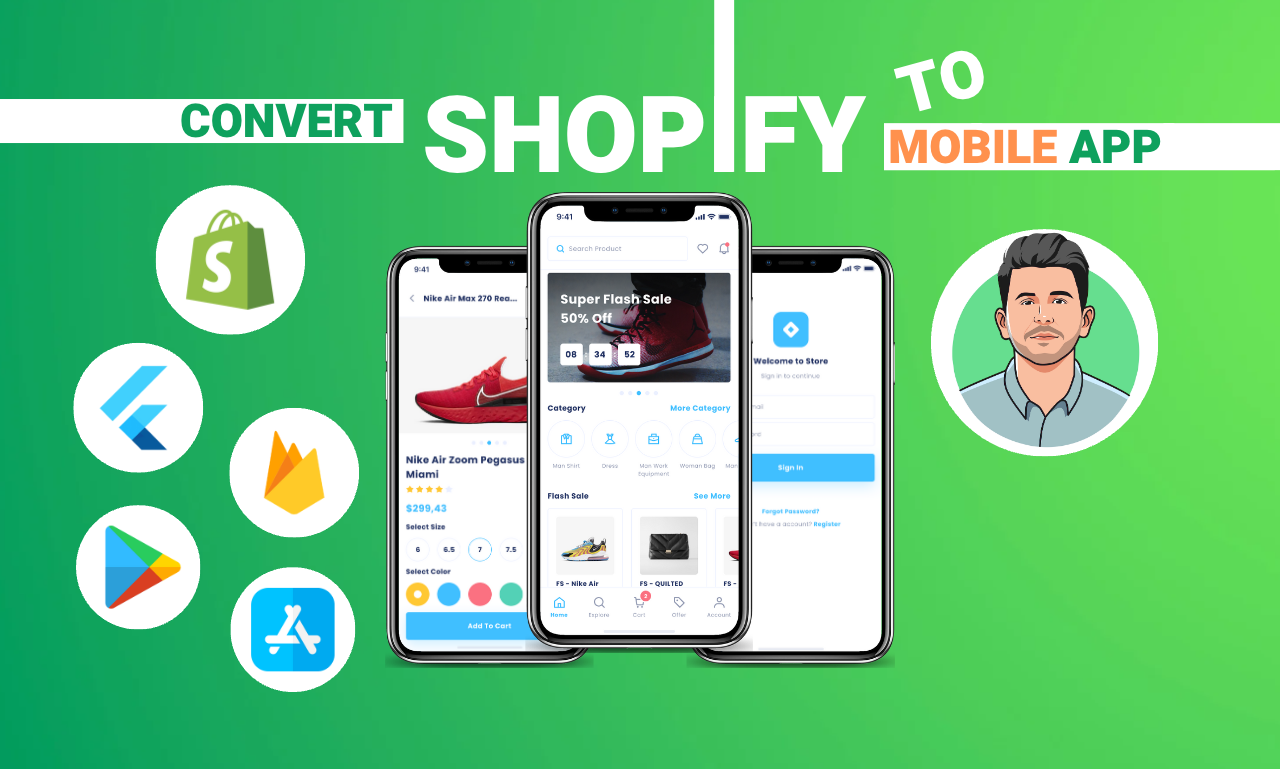Shopify is a commerce platform to sell product/service online for all business. And, Shopify store owners want to convert their Shopify store to mobile app to be available on the App Store & Google Play in order to access more users & increase theirs earning.
There are two ways(Native, WebView) of the converting Shopify store to a great mobile app. I will explain both of them, and mention of theirs cons and pros in this blog.
First way is Native Shopify Apps
Native Shopify apps consist of iOS and Android platforms recommended components, and run directly on the hardware. For that reasons, they have access to the full capabilities of the device, such as camera, contacts, GPS, and other hardware features. Furthermore, Their performance is very good & works smooth & user-friendly.
Even this way looks very good, it is hard to develop Shopify native apps. It needs to be done application design, API integrations with the backend of your Shopify store and installing tons of library… To do that, you need to have a paid native developer to handle these work for you. It requires 3-5 month depends on your developer’s performance. However there are software companies that they built to sell an ready-to-use native Shopify apps as source code, you just need to buy their source code, and find a developer to adapt the source code to your Shopify Store. Even you can adapt it yourself by looking the document of the source code.
Mostly, this way is not recommended for small and fresh business. Because it is more costly than the second way and may the earning from the Shopify store can’t bare its price.
Second way is WebView Shopify Apps
WebView Shopify app is the way to create a clone of your Shopify store. I am saying clone because it looks same as your Shopify website. Even you change your website, the app is also changed automatically. The app works as same fast as Google Chrome and Safari. Because it is using these mobile browser infrastructure to show your website inside the app. Moreover, you can add some native feature to the app to make it functional like pushing notification, splash screen, internet control, loading screen, app rating dialog, bottom navigation bar, pull to refresh feature, onboarding screen so on.
The below is an example video of the WebView app.
The example app mainly has WebView, push notification, internet control, splash page, pull to refresh, bottom navigation bar, loading screen, app rating features.
The advantages of the WebView apps, their errors can be fixed on the website without changing the app’s source code. It is easy to develop, and relatively far less cost than the native apps. If you are an small and fresh business, you can go with Shopify WebView Apps. Even you can buy it only 100$(one time cost) from Webvify.
Let me compare the native Shopify & web view Shopify apps below to give you a total overview.
| Native | WebView | |
| Cost | High | Low |
| Development Time | More | Less |
| Performance | High | Same as mobile browser |
| Accessing to hardware | High | Low |
| Error Safety | Low | High |
| Security | Same | Same |
Conclusion
We have discussed the two ways of converting Shopify websites to mobile app. We mentioned the pros and cons of the ways. I recommended the second way for the small and fresh business, and first way for the relatively large business. I hope the blog can contribute value to your business. Have a nice days.
Thank you.

